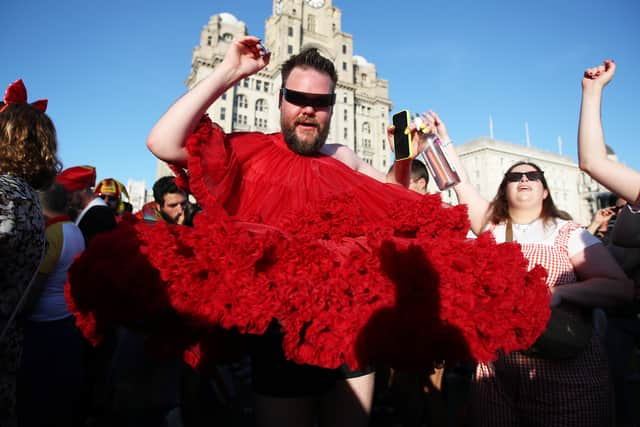Eurovision 2023 was one hell of a journey and could leave a £250m legacy as Liverpool smashes targets
and live on Freeview channel 276
It was June 2022 when Liverpool officially offered to host the Eurovision Song Contest 2023. The European Broadcast Union confirmed it was looking for another location to be home to the competition due to the ongoing war in Ukraine.
Twenty UK cities threw their hats in the ring, and after the seven city shortlist was whittled down to the finalists, leaving just Glasgow and Liverpool standing, it was announced in October that the Eurovision spotlight would shine on the city.
Advertisement
Hide AdAdvertisement
Hide AdLiverpool received praise from the selectors for its world-class facilities, including the M&S Bank Arena and ACC Liverpool, the innovation behind its cultural programme, the plans to celebrate Ukrainian people and community and the 'walkability' of the city.
The City’s unrivalled reputation for staging large-scale cultural events played a key part in the decision-making process, as did the city's relationship with its sister city Odesa, in Ukraine.
The city region-wide support for Liverpool's bid also proved to be a hit with the judges, and the 'Team Liverpool' approach was noted as residents, visitors, organisations, and community groups across the city got behind the bid.
Liverpool City Council announced it would contribute £2million, with Liverpool City Region contributing another £2m and the remainder being covered by a mixture of central government funding, commercial partners and local businesses.
Advertisement
Hide AdAdvertisement
Hide AdEven at the first press conference late last year, it seemed like a massive feat to take on, with not a lot of time to pull it off. Before this, I'm sure, like most of us, I was ignorant in thinking that Eurovision was just one night, but it's so much for than that.
As part of its host city offer, Liverpool was responsible for the official Eurovision Village, EuroLearn, EuroStreet, EuroClub, EuroVols and EuroFestival. Going into schools, taking aspects of the contest out into the community and a cultural and artistic takeover. The Culture Liverpool team ensured that the spirit of the competition was felt across the region.


Although the economic impact and full evaluation will not be known for a few weeks, early footfall data and figures from Merseyside Police suggest that, over the two weeks of the festival, 500,000 visitors came to Liverpool – compared to the 100,000 forecast.
The Eurovision Village on the Pier Head – which was open for nine days – welcomed 250,000 visitors. Figures from Liverpool BID Company show the city centre had an additional 384,036 visitors – an increase of 13.2% on 2022.
Advertisement
Hide AdAdvertisement
Hide AdLiverpool ONE saw a 32% growth in numbers compared to the same period last year – with some days seeing increases as high as 53%. Over half a million people visited Liverpool ONE last week, making it the busiest week of the year.
It was predicted that Eurovision would be directly worth around £25m for the regional economy. Long term, it's thought it could also increase tourism to the city by up to 5% a year – which equates to over £250m in extra revenue by 2026.
Comment Guidelines
National World encourages reader discussion on our stories. User feedback, insights and back-and-forth exchanges add a rich layer of context to reporting. Please review our Community Guidelines before commenting.
